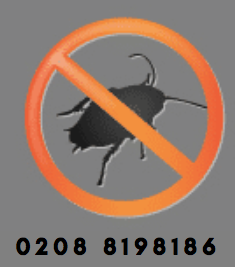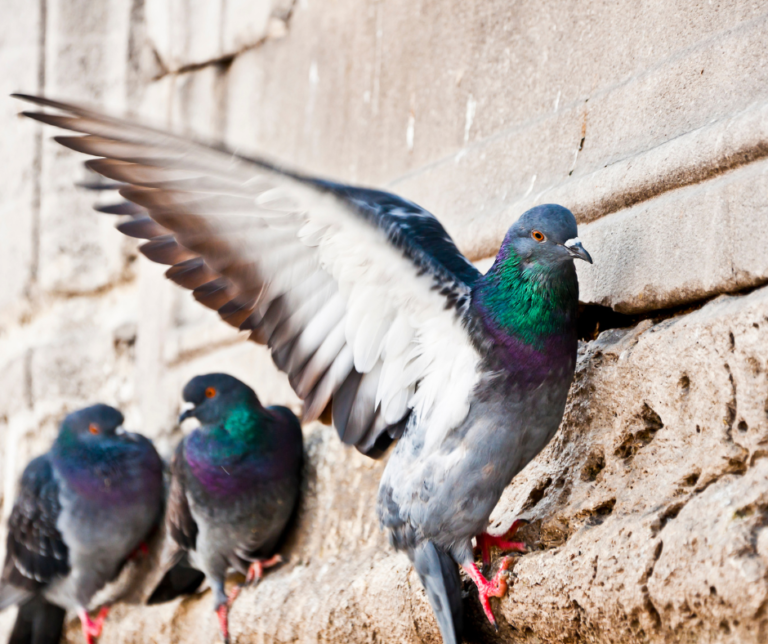
Pigeons, the scourge of many towns and cities across the UK. The borough of Islington in north London is no exception. But in the last few years it would seem that the feral pigeon population is on the rise. There are a number of reasons of why this may be, the recession being one of them. During times of a recession, Islington has seen a large number of businesses, big and small, close down therefore leaving many properties vacant. With all these premises being left empty and with many of them falling into disrepair, they have become ideal nesting sites if they are not boarded up correctly and supervised regularly. Unlike the Wood Pigeon that nests in trees and is no relation, the feral pigeon will almost exclusively nest on and inside any buildings and normally at height.
With the rise of the feral pigeon population in Islington, also come the rise in problems associated with nesting. The build up of excrement that can be found around nesting sites, can become infested with mites and insects. These are pests that can infect stored products like flours and also your home. They can include: Varied Carpet Beetle, Fur Beetle, Larder Beetle, Biscuit Beetle, Clothes Moth, Brown House Moth, Cheese Mite, Flour Mite, Common Bird Mite and Pigeon Tick. These mites and insects can carry many diseases and can cause the following in humans: Chlamydosis, Salmonellas and can cause extreme breathing difficulties for anyone suffering with asthma or any lung problems.
Then there are also the problems and damage to properties. Blocked gutters and down pipes can cause water damage by seepage coming into the property causing damp. Chimneys can become blocked by nests, causing smoke problems by smoke and harmful gasses not escaping and being reversed back into the property. Gasses such as carbon monoxide may be forced back into the house causing carbon monoxide poisoning. All of These problems can lead to increased costs of maintenance and the risk of being a nuisance to neighbouring properties. It can also have an effect on the price if you are trying to sell. Large numbers of roosting pigeons also can cause odour and noise problems resulting in complaints. Then there is the risk of general health and safety, especially for businesses in terms of slipping hazards on pavements and fire escapes, from the accumulations of droppings.
There are many ways to alleviate a pigeon problem. One of the most effective ways of reducing the feral pigeon population in Islington and around the UK can be achieved by simply restricting the supply of food available to them. Quite simply don’t put out any rubbish until the day of collection. Stop throwing out bread or bird seed out for the birds (this will attract rats as well) and discard your lunchtime snack packaging and food waste in to a bin. Some cities have deliberately established favourable nesting sites for pigeons. These are nesting places that can easily be accessed by council workers, who regularly remove the eggs, thereby limiting the reproductive success of the feral pigeons. Pigeon populations may also be reduced by bird control systems that successfully reduce nesting sites. Peregrine falcons are a popular choice of bird for many pest control companies. Some cities are actively introducing breeding programmes of peregrine falcons as they are a natural deterrent of pigeons.


